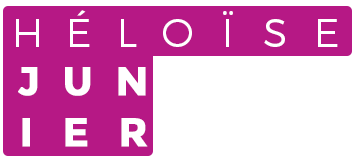 Read this short article published on the Cercle Psy website.
Read this short article published on the Cercle Psy website.
Ten years ago, the first specialized Referral Centers were set up to diagnose and treat learning disorders in children. Their aim? To recognize and work on behalf of « dys children »: dysphasics (with oral language disorders), dyspraxics (disorders of gestural coordination), dyscalculics (calculation disorders), dysorthographics (spelling disorders)… A set of increasingly popular diagnoses labeling a child.
This one is clumsy and writes badly? We call him dyspraxic. Does he have difficulty with arithmetic? We call him dyscalculic. The medical consonance of these terminologies reassures parents and teachers. And with good reason: by referring to neurology and neuropsychology, these diagnoses simplify a complex problem and rule out any cause of psychological origin. And, since they were recognized as disabilities in 2005, their popularity has soared. From now on, making such a diagnosis will enable the family to benefit from financial aid to ensure the care of the child in difficulty, bearing in mind that only diagnoses made by Referral Centers are recognized.
After ten years’ experience running one of these centers, Evelyne Lenoble, child psychiatrist and psychoanalyst, head of the Child and Adolescent Psychopathology Unit at the Centre Hospitalier Sainte-Anne, offers an assessment of the situation. And the conclusion is as follows: the number of requests from families wishing to have their child diagnosed by a Referral Center continues to grow, to the point of excessively extending waiting times. This proliferation of « dys » disorders has been accompanied by a multitude of upheavals affecting the field of schooling, health and disability: the decline of the Réseaux d’Aides Spécialisées aux Élèves en Difficulté (RASED) in schools, the resurgence of Classes d’Inclusion Scolaire (CLIS), the development of specialized psychological tests and remediation techniques for these « dys » disorders, the creation of the MDPH (Maisons Départementales des Personnes Handicapées) where families must submit their files if they wish to benefit from financial aid for their child. In the face of all this activity, is there a need to rethink the diagnosis and treatment of « dys » disorders? At present, » diagnostic labels are much more a reflection of the theoretical orientation and training of practitioners (…) than of the child himself « , analyzes Evelyne Lenoble. In her view, it would therefore be appropriate to cross the different points of view, to include a psychoanalytical reading and thus propose an assessment that is as close as possible to the child’s difficulties. In short, to move towards a plural « Reference ».
Source: Lenoble, E. (2012). Learning and referral: some reflections from ten years’ experience of a Child Learning Disability Referral Center. Child and Adolescent Neuropsychiatry 60, 190-194.
